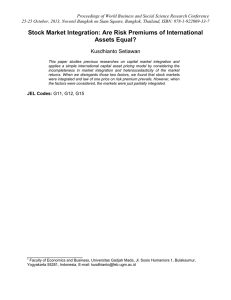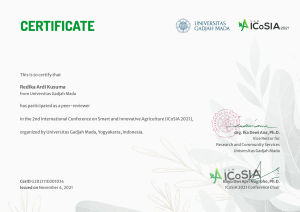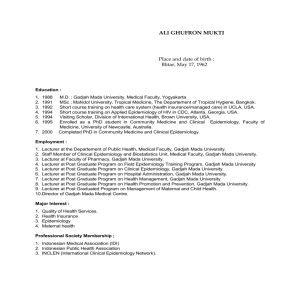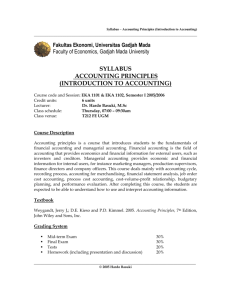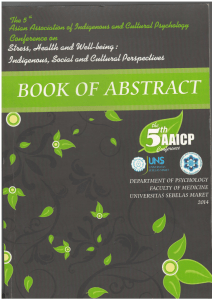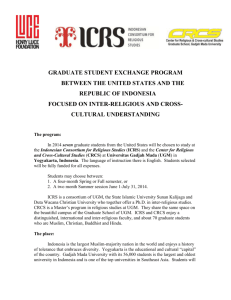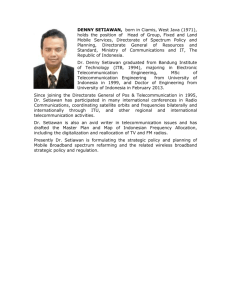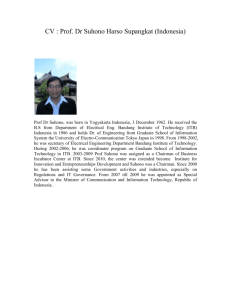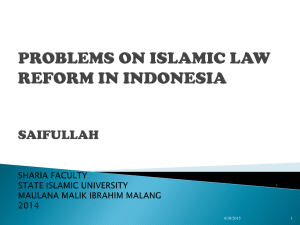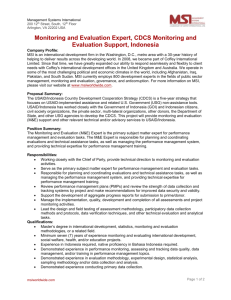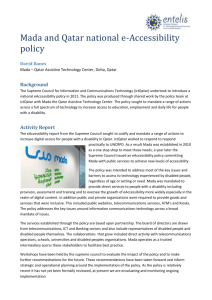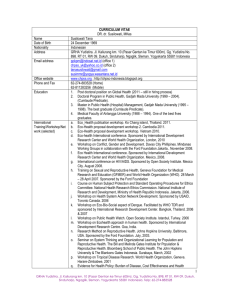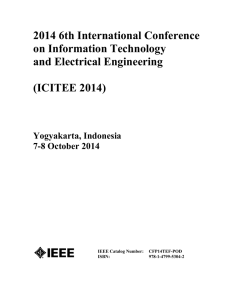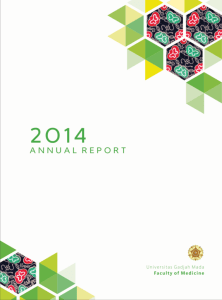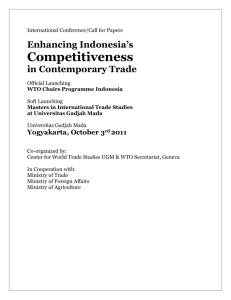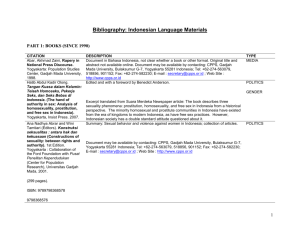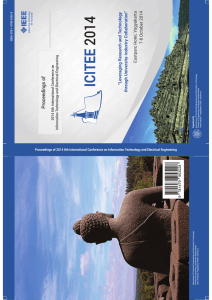UGM DPU Solar Energy for Rural Communities - RCE
advertisement
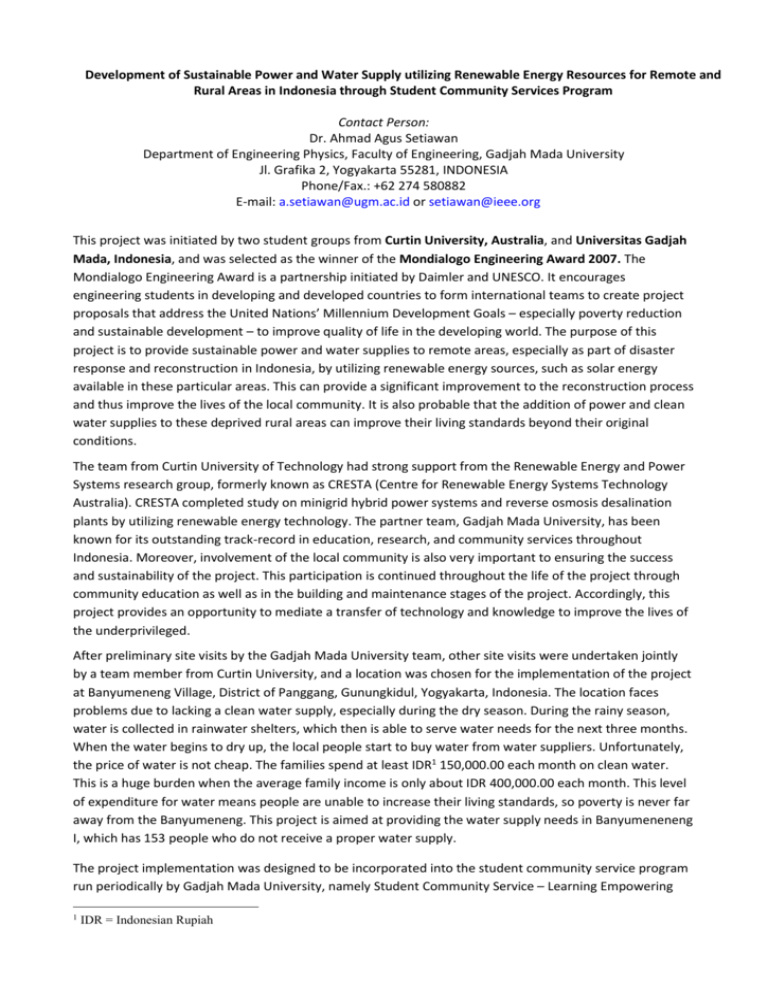
Development of Sustainable Power and Water Supply utilizing Renewable Energy Resources for Remote and Rural Areas in Indonesia through Student Community Services Program Contact Person: Dr. Ahmad Agus Setiawan Department of Engineering Physics, Faculty of Engineering, Gadjah Mada University Jl. Grafika 2, Yogyakarta 55281, INDONESIA Phone/Fax.: +62 274 580882 E-mail: a.setiawan@ugm.ac.id or setiawan@ieee.org This project was initiated by two student groups from Curtin University, Australia, and Universitas Gadjah Mada, Indonesia, and was selected as the winner of the Mondialogo Engineering Award 2007. The Mondialogo Engineering Award is a partnership initiated by Daimler and UNESCO. It encourages engineering students in developing and developed countries to form international teams to create project proposals that address the United Nations’ Millennium Development Goals – especially poverty reduction and sustainable development – to improve quality of life in the developing world. The purpose of this project is to provide sustainable power and water supplies to remote areas, especially as part of disaster response and reconstruction in Indonesia, by utilizing renewable energy sources, such as solar energy available in these particular areas. This can provide a significant improvement to the reconstruction process and thus improve the lives of the local community. It is also probable that the addition of power and clean water supplies to these deprived rural areas can improve their living standards beyond their original conditions. The team from Curtin University of Technology had strong support from the Renewable Energy and Power Systems research group, formerly known as CRESTA (Centre for Renewable Energy Systems Technology Australia). CRESTA completed study on minigrid hybrid power systems and reverse osmosis desalination plants by utilizing renewable energy technology. The partner team, Gadjah Mada University, has been known for its outstanding track-record in education, research, and community services throughout Indonesia. Moreover, involvement of the local community is also very important to ensuring the success and sustainability of the project. This participation is continued throughout the life of the project through community education as well as in the building and maintenance stages of the project. Accordingly, this project provides an opportunity to mediate a transfer of technology and knowledge to improve the lives of the underprivileged. After preliminary site visits by the Gadjah Mada University team, other site visits were undertaken jointly by a team member from Curtin University, and a location was chosen for the implementation of the project at Banyumeneng Village, District of Panggang, Gunungkidul, Yogyakarta, Indonesia. The location faces problems due to lacking a clean water supply, especially during the dry season. During the rainy season, water is collected in rainwater shelters, which then is able to serve water needs for the next three months. When the water begins to dry up, the local people start to buy water from water suppliers. Unfortunately, the price of water is not cheap. The families spend at least IDR1 150,000.00 each month on clean water. This is a huge burden when the average family income is only about IDR 400,000.00 each month. This level of expenditure for water means people are unable to increase their living standards, so poverty is never far away from the Banyumeneng. This project is aimed at providing the water supply needs in Banyumeneneng I, which has 153 people who do not receive a proper water supply. The project implementation was designed to be incorporated into the student community service program run periodically by Gadjah Mada University, namely Student Community Service – Learning Empowering 1 IDR = Indonesian Rupiah Community. In this program, groups of final year undergraduate students from interdisciplinary backgrounds are deployed for a period of two months into rural areas in order to be actively involved in the development process in the designated locations. An academic staff is responsible for supervising a group of student. In this way, students obtain first-hand experience of dealing with local community problems, and they are supposed to become agents of change and agents of development, together with the local community. For this project implementation, three groups of student were deployed as a continuous program: First group involving 28 students were deployed in July – August 2008 for the preparation stage, such as survey, social engagement, technology socialization. Second group involved 26 students being deployed in July – August 2009 for the solar water pumping system installation. At the end of the August 2009, the project is completed with some additional works on building the water distribution system commenced afterward. Third group involved about 29 students for period of July –August 2010 for maintenance program, organization, capacity building, economics and sustainability issues. Video Coverage on the Project Implementation is available through: https://sites.google.com/site/aasetiawansite/research-project---videos
